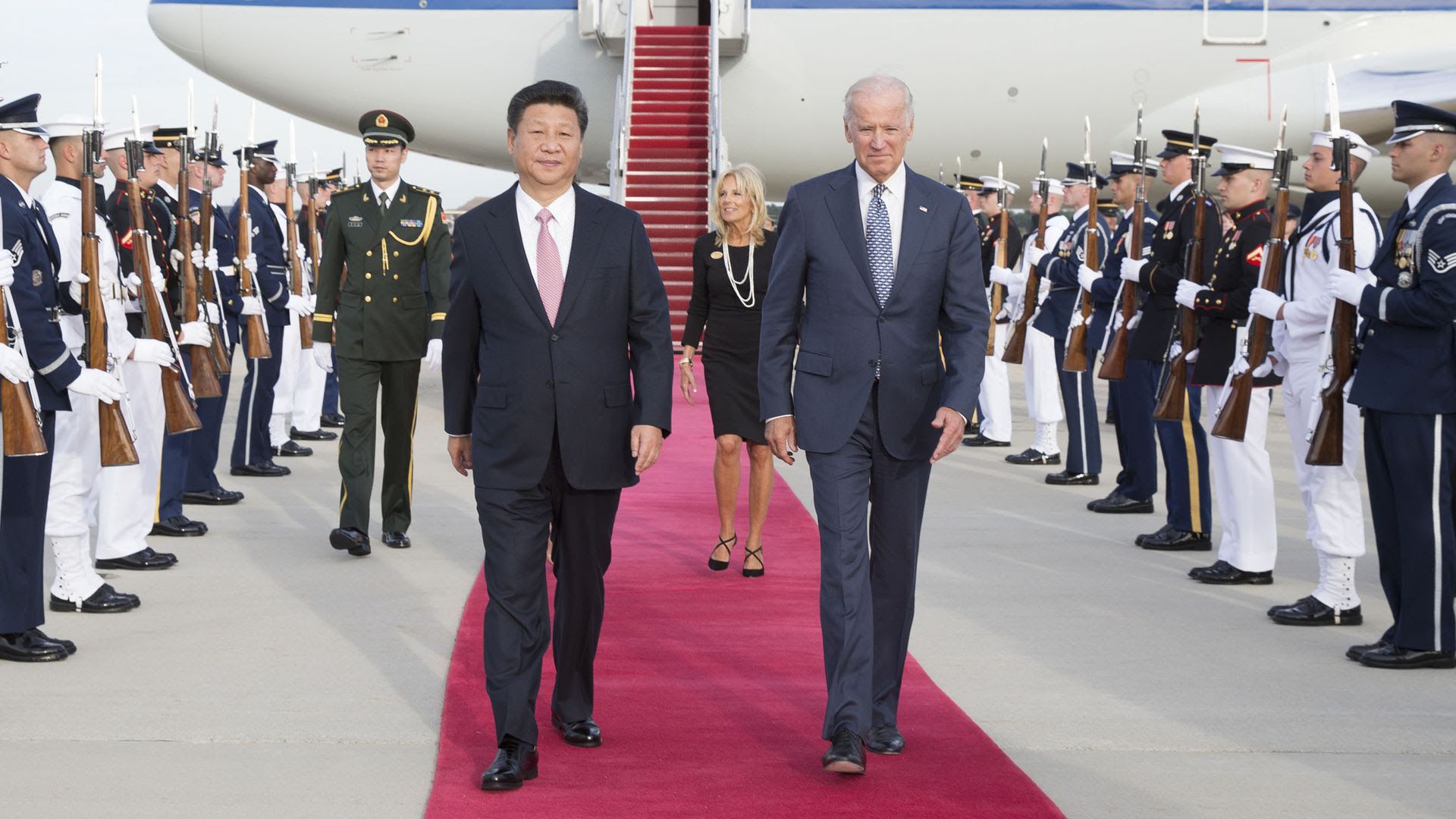Let Washington bury its dead.
Surviving the Next Four Years of Tech

Are we ready to live in our new digital environment?
In the event that President Trump is re-elected, the discourse around Big Tech—and the policies that flow from it—will ratchet into a higher gear. From the standpoint of people “across the ideological spectrum” who oppose the runaway consolidation of public consciousness into a virtual world managed by today’s tech ruling class, that will be a major benefit of a second Trump term.
As immortalized by ruling-class paeans around the time of Obama’s second term to the power of “data” (read: teched-up experts) to “save politics,” the established Left planned—long before the advent of Trump or COVID—to use the power of digital technology to consolidate world mindshare around their dreamed-up ethical framework. Trump’s election signaled strongly to the teched-up elite that the machines had betrayed them and required an all-new level of national and global control.
The present focus of that reaction has been on Trump himself, but also on Trump’s supporters, who are “even worse” because they can’t be thrown out of office. But a growing populist wing of the Left recognizes that routine plebiscitary rubber stamps on compliance mandates issued by technologized woke autocrats is not, in fact, liberal or democratic, and is certainly not America. Despite obvious ideological cleavages, another Trump term will hold open the Overton window needed by loyal Americans of diverse beliefs who understand that the appropriation of all speech and thought space into an elite-managed virtual world is fatal to our flourishing.
Things will be different under a Biden (read: Harris) administration. Due to Trump and COVID, the teched-up elite will go into overdrive toward what is now commonly known as a “great reset”—a top-down seizure of control over both wayward “bots” and humans, neither of whom have evinced an attitude of sufficient compliance with the ethical framework of the woke managerial class.
This is a realm of life where no degree of “de-polarization” or “re-normalization” in political rhetoric will change the vector of virtualization and consolidation of spiritual power in America and beyond. The goal is to implement the psychic transformation of the “Never Trump” worldview into a “Never Again” worldview. The means is to ensure that political support for any political figure strong enough even to delay or disrupt the “great reset” can no longer be organized—or even dreamed of.
The difficulty in responding to such an eventuality is compounded and illustrated by the largely shambolic response on the Right to the current challenge of understanding and responding to the digitalization of America and the world. While some critics and policymakers have a good grasp on the dynamics, the general situation is marked by confusion and passivity.
Curing these ills requires separating the “tech issue” into three tiers of understanding—individual, organization, and medium. At the individual level, the “tech issue” is exemplified by the head of Twitter sending one officialized fantasy expert, the self-named Ibram X. Kendi, $10 million—at the same time as he oversees the arbitrary neutralization of Twitter accounts large and small if they offend the spiritual convictions of woke technologists and their televisual allies in the discourse-ruling class. People on the Right correctly understand this kind of behavior as part of a naked attack on their political viability by a panicky and militant elite bent on ensuring their form of rule is never threatened again.
But the larger picture is essential to putting this behavior in context. At the organizational level, people on the Right (and the now-dissident Left) are correct to see the top Silicon Valley firms as part of an increasingly seamless interlocked regime unit composed of the financialized economy and the fantasy-industrial complex. As the TED project suggests, this regime unit views technology, entertainment, and design as a single civilizational undertaking through which a newly pure or perfect world spiritual order is built, broadcast, and installed into the hearts and minds of, eventually, all. The organizations on board with this mission are familiar, from Netflix and Google on the west coast to the Human Resources-dominated legacy corporations and government agencies on the east. These groups are certain that they can and must bring digital technology completely under their control in order to ensure their collective survival and their rule in concert.
Yet there is a problem: the digital medium does not care at all about their mission, their religion, their status, or their schemes. In brief, this is because digital technology is not just a progressive iteration of “tech” in the abstract, building on or advancing the power and authority of pre-digital technology. To the contrary, it creates a psychological and social environment totally different from the televisual one that previously formed us. Televisual life was one where those who ruled image and imagination ruled, and deserved to rule, the world. Its anthem was Lennon’s “Imagine” and its economy was that of Disney’s imagineers. Its elite was created under the ideal that all humans had to be equally emancipated from preexisting constraints on their imagination, and on their identities, which were seen as utterly contingent on their imaginations.
The assumption of this imagineering elite was that digital technology was not different in kind from what came before—after all, they were formed by the televisual medium and so, they assumed, their machines would be. This naïve and self-serving delusion was rocked by Trump’s election and even more by the huge world surge in oppositional movements organized and powered by and through the digital medium. But the delusion was not shattered: the imagineering elite is more certain than ever that it must rule, and that because it must, it can. If you can dream it, you can do it: this is the logic of imagineering.
The digital medium denies this. Rather than image and imagination, the digital medium elevates to the realm of rule memory and recall. Imagineers believe they can enslave the power of machine memory to the power of human fantasy. They can and will pour all their energies into proving this out and clawing back their position of turn-of-the-millennium supremacy. But the rules have changed. No matter how much harm they may do in the process—and they are on track to do a lot—they will fail.
This is why those who want to prepare for the next phase of the war over the bots need to understand the three tiers of the “tech issue.” To preserve competent cultural agency and shared governance in our recognizably real world, it will not be enough to appeal to free markets, punish individual technologists, or break up certain companies. The inexorable force of the digital medium reworking every feature of our psychological and social surround will ultimately undermine and frustrate the aims and goals of all fantasists, including the smartest and most powerful adepts at “hacking your brain” with their ultimate dreams. But the disenchantment of “normie” fantasies worked by life in the digital medium is itself pushing ex-normies on the Left toward even-now-obscured extremes of woke religion, the terminal point of which is a gnostic and posthuman inquisition, an always-on, inescapable ritual of pre-crime and punishment.
It is at the level of the digital medium itself where the stakes facing America over the next four years really play out, and it is the one, unfortunately, where almost no one is equipped and prepared to fight. Among the few who are include technologists who understand that an America—and a world—where real-life humans retain competent authority and control over bots and freedom from bot-enforced systemic compliance is one where independent rival protocols have been spun up and broadly adopted. This means, in short, a “new internet”—where programming architecture ensures users’ identities and data are not leased back to them and where their value, real or virtual, is not at the mercy of pricing mechanisms established by effective cartels of consolidated Silicon Valley and Wall Street entities.
Surviving the next four years of tech will require action along each of the three tiers of the issue—opposing the individuals and organizations seeking to master us all once and for all by programming our bots to install and enforce their fantasies, yes, but also mastering for ourselves a full understanding of the digital medium and how it reworks everything. Only new institutions and organizations that work with the medium, not against it, will be enough to help Americans and others maintain their competent agency, their citizen governance, and their natural identities in the world now rising to dominance. Under a second Trump administration, room to develop and deploy such new modes and orders will be much greater than under a different administration. Plan accordingly.
The American Mind presents a range of perspectives. Views are writers’ own and do not necessarily represent those of The Claremont Institute.
The American Mind is a publication of the Claremont Institute, a non-profit 501(c)(3) organization, dedicated to restoring the principles of the American Founding to their rightful, preeminent authority in our national life. Interested in supporting our work? Gifts to the Claremont Institute are tax-deductible.
With the Left in control, who controls the Left?
Over the next four years, conservatives risk well and truly losing the culture wars.
Gird your loins.
Sexual “liberation” carries on apace. Under Biden, it will accelerate.
No matter what happens, the Right must be prepared.






